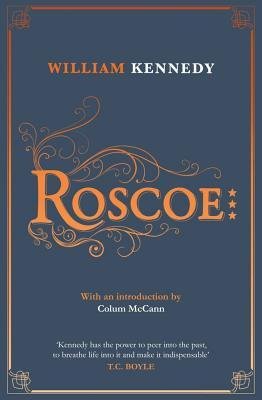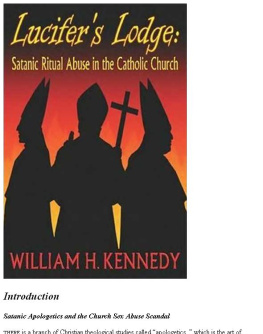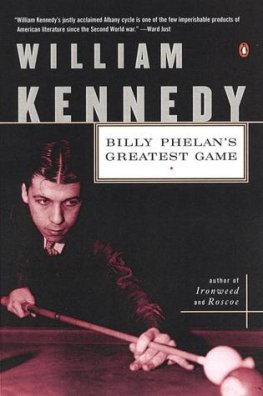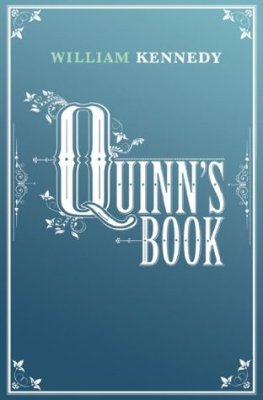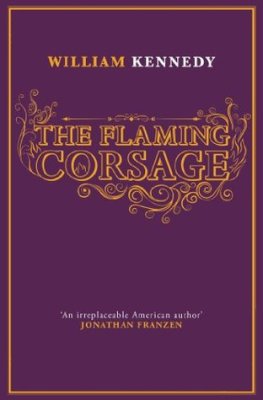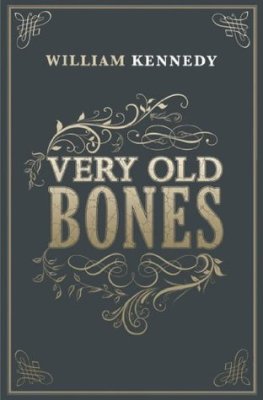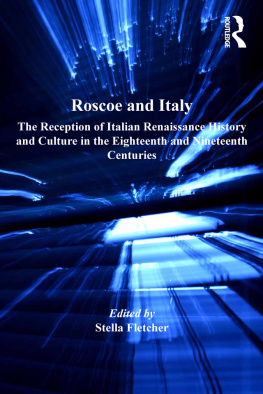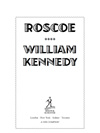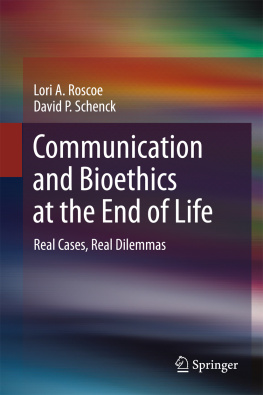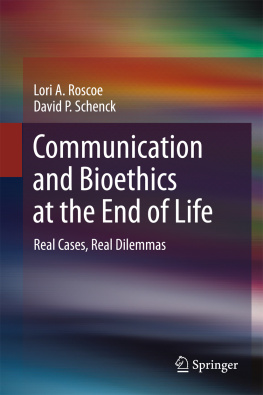THIS BOOK IS DEDICATED TO MY COHORT OF EARLY ROSCONIANS:
Harry and Helen Staley, Andy and Betsy Viglucci,
Doris Grumbach, Laurie Bank, Peg Boyers,
Dennis Smith, Brendan Kennedy,
and to my wife, a cohort all by herself,
the endlessly astonishing
Dana
That year an ill wind blew over the city and threatened to destroy flowerpots, family fortunes, reputations, true love, and several types of virtue. Roscoe, moving along the road, felt the wind at his back and heard the windblown voices.
Do you know where the ill wind comes from, Roscoe? the voices asked him.
No, he said, but Im not sure the wind is really ill. Its illness may be overrated, maybe even fraudulent.
Do people think theres such a thing as a good ill wind? they asked.
Of course, he answered. And when it comes it billows the sails of our city, it nourishes our babies, comforts our aliens, gives purpose to our dead, tranquilizes our useless, straightens our crooked, and vice versa. The ill wind is a nonesuch and demands close attention.
Why should we believe what you say?
As I am incapable of truth, Roscoe said, so am I in capable of lying, which is, as all know, the secret of the truly successful politician.
Are you a politician, Roscoe?
I refuse to answer on grounds that it might degrade or incriminate me.
The Spheres of War and Peace
Roscoe Owen Conway presided at Albany Democratic Party headquarters, on the eleventh floor of the State Bank building, the main stop for Democrats on the way to heaven. Headquarters occupied three large offices: one where Roscoe, secretary and second in command of the Party, received supplicants and debtors, one where Bart Merrigan and Joey Manucci controlled the flow of visitors and phone calls, and one for the safe which, when put here, was the largest in the city outside of a bank vault. Of late, no money was kept in it, only deceptive Democratic financial data to feed to the Governors investigators, who had been swooping down on the Partys files since 1942, the year the Governor-elect vowed to destroy Albany Democrats.
Money, instead of going into the great safe, went into Roscoes top drawer, where he would put it without counting it when a visitor such as Philly Fillipone, who sold produce to the city and county, handed him a packet of cash an inch thick, held by a rubber band.
Maybe you better count it, make sure theres no mistake, Philly said.
Roscoe did not acknowledge that Philly had raised the possibility of shorting the Party, even by accident. He dropped the cash into the open drawer, where Philly could see a pile of twenties. Democratic business was done with twenties. Then Philly asked, Any change in how we work this year, Roscoe?
No, Roscoe said, same as usual. And Philly went away.
At his desk by the door Joey Manucci was recording, on the lined pad where he kept track of visitors in their order of arrival, the names of the men who had just walked in, Jimmy Givney and Cutie LaRue. Joey was printing each name, for he could not write script or read it. Bart Merrigan spoke to the two arrivals. Merrigan, who had gone into the army with Roscoe and Patsy McCall in 1917, was built like a bowling pin, an ex-boxer and a man of great energy whom Roscoe trusted with his life. Merrigan leaned into Roscoes office.
Patsy called. Hell be in the Ten Eyck lobby in fifteen minutes. Givney from the Twelfth Ward and Cutie LaRue just came in.
Have them come back Friday, Roscoe said. Is the war over?
Not yet. Cutie says youll want to see him.
How does he know?
Cutie knows. And what Cutie dont know hell find out.
Send him in.
Merrigan told Jimmy Givney to come back Friday and Joey scratched a line through his name, using a ruler for neatness. Merrigan turned up the volume of the desk radio he was monitoring for news of the official Japanese surrender. A large framed photo of the new President hung on the wall behind his desk. On the wall opposite hung George Washington, FDR, who was still draped in black crepe, and Alexander Fitzgibbon, the young Mayor of Albany.
What can I do for you, Cute? Roscoe asked.
Can we close the door?
Close it.
And Cutie did. Then he sat down. George (Cutie) LaRue was an aspiring lawyer who had failed the bar examination fourteen times in eight states before he passed it. He did not practice, but he knew most of the political population of Albany on a first-name basis. He functioned as a legislative lobbyist, and everybody knew him by his large, heavy-lidded, Oriental eyes, though he was French. He had a low forehead and combed his hair straight back. His tic was slicking back the hair over his right ear with the heel of his hand as he exhaled cigarette smoke from his mouth and inhaled it up his nose. Cutie knew your needs and he often lobbied for you, whether you paid him or not. If he delivered, you paid him. If he didnt deliver, hed try again next session. He held no grudges, for he was ambitious. Cutie once overheard Patsy saying he wanted a book on Ambrose Burnside, a Union general in the Civil War, but it was out of print. Cutie learned that a copy was sitting on a shelf in the library at West Point. He drove to West Point, stole the book, and gave it to Patsy.
You didnt hear this from me, Cutie said to Roscoe.
I dont even know what you look like, Roscoe said.
I heard it from Scullys office this afternoon. Straight stuff, Roscoe. I kid you not.
Are you just talking, Cute, or are you trying to say something?
They want to nail you.
This is very big news, Cute. I wish you could stay longer.
They have stuff they can use.
Like that missing forty thou when they subpoenaed our books? That money is not missing, Roscoe said.
Theyre tapping your lines, reading your mail, watching your wild girlfriend, Trish Cooney.
Shes easy to watch. Also, she leaves the shades up.
They know all your moves with women.
They get paid for this?
You got a reputation. You know how they like scandal.
I wish my life was that interesting. But thanks, Cute. Is that it?
Theyre on you full-time. I heard Scully himself say nailing you was as good as nailing Patsy.
I appreciate this news.
You know what Im looking for, Roscoe.
Yes, I do. A courtroom you can call home.
Its not asking a lot. Im not talking Supreme Court. Small Claims Court, maybe. Or Traffic Court. Id make a hell of a judge.
Roscoe considered that: The Cute Judge. Cute the Judge. Judge Cutie. Cutie Judgie. Jurors in his court would do Cutie Duty.
A hell of a judge, Roscoe said. It goes without saying.
Roscoe put on his blue seersucker suit coat, waved farewell to the boys, took the elevator down, and went out and up State Street hill. The day was August 14, 1945. Roscoe wore a full beard, going gray, but his mustache was mostly black. Trust no man, not even your brother, if his beard is one color, his mustache another. He was fat but looked only burly, thinking about developing an ulcer but seemed fit. He was burning up but looked cool in his seersucker.
He went into the State Street entrance of the Ten Eyck and up the stairs to the lobby, which was also cool and busy with people checking in three soldiers, two WACs, a sailor and a girl, rooms scarce tonight if the Japs surrendered. He crossed the marble floor of the lobby and sat where he always sat, precisely where Felix Conway, his father, had sat, this corner known then and now as the Conway corner. He signaled silently to Whitey the bellhop to send a waiter with a gin and quinine water, his daily ritual at this hour. He looked across the lobby, trying to see his father. Im looking for advice, he told the old man.
Roscoes condition had become so confounding that he had asked Patsy McCall and Elisha Fitzgibbon, his two great friends, with whom he formed the triaxial brain trust of the Albany Democratic Party, to come to the hotel and talk to him, away from all other ears. Roscoe, at this moment staring across time, finds his father sitting in this corner. It is a chilly spring afternoon in 1917, the first Great War is ongoing in Europe, and Roscoe, twenty-seven, will soon be in that war. Hes clean-shaven, a lawyer whose chief client is the Fitzgibbon Steel mill, and he also has an eye on politics.

